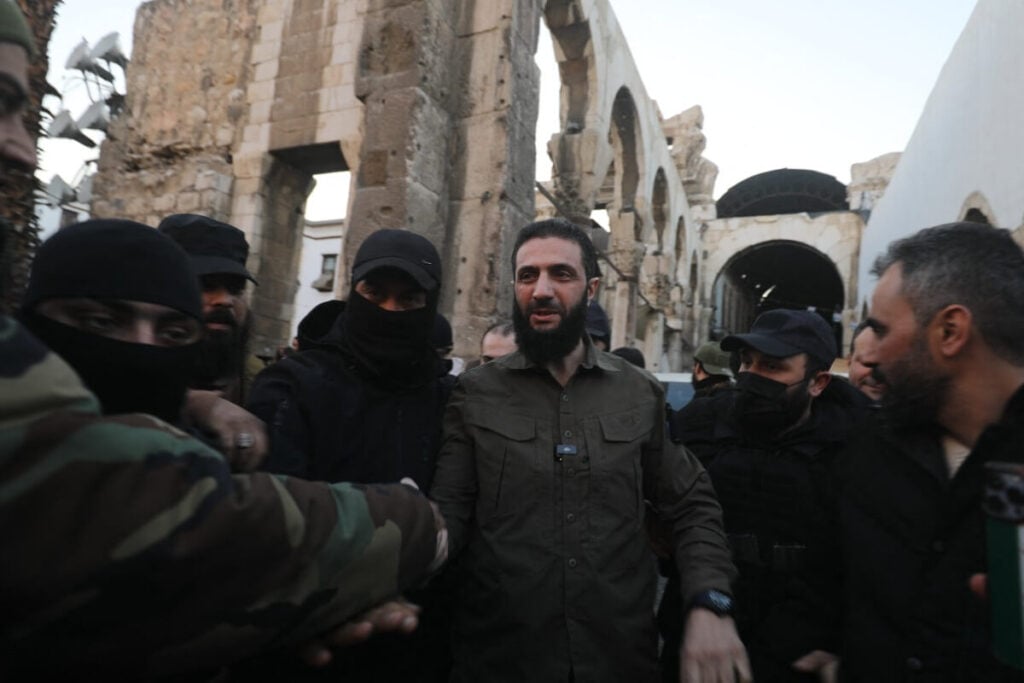An alliance of Syrian rebel groups communicated to Turkey six months ago plans for a major offensive that has resulted in the collapse of the regime of Bashar al-Assad and felt they had received its tacit approval, two sources with knowledge of the planning told Reuters.
Launched barely two weeks ago, the operation’s speedy success in achieving its initial goal — seizing Syria’s second city of Aleppo — took almost everybody by surprise. From there, in little more than a week, the rebel alliance reached Damascus and on Sunday put an end to five decades of Assad family rule.
The lightning advance relied on an almost perfect alignment of stars for the forces opposed to Assad: His army was demoralized and exhausted; his main allies, Iran and Lebanon’s Hezbollah, were severely weakened by conflict with Israel; and his other key military supporter, Russia, was distracted and losing interest.
There was no way the rebels could go ahead without first notifying Turkey, which has been a main backer of the Syrian opposition from the war’s earliest days, said the sources, a diplomat in the region and a member of the Syrian opposition.
Turkey has troops on the ground in northwest Syria and provides support to some of the rebels who were intending to take part, including the Syrian National Army (SNA) — though it considers the main faction in the alliance, Hayat Tahrir al-Sham (HTS), to be a terrorist group.
The rebels’ bold plan was the brainchild of HTS and its leader, Ahmed al-Sharaa, better known as Abu Mohammed al-Golani, the diplomat said.
Because of his former ties to al-Qaeda, Golani is designated as a terrorist by Washington, Europe and Turkey.
However, over the past decade, HTS, previously known as the Nusra Front, has tried to moderate its image, while running a quasi-state centered in Idlib, where, experts say, it levied taxes on commercial activities and the population.
Turkish President Recep Tayyip Erdoğan’s government, which struck a deal with Russia in 2020 to de-escalate fighting in northwestern Syria, has long opposed such a major rebel offensive, fearing it would lead to a new wave of refugees crossing its border.
However, the rebels sensed a stiffening of Ankara’s stance towards Assad earlier this year, the sources said, after he rebuffed repeated overtures from Erdoğan aimed at advancing a political solution to the military stalemate, which has left Syria divided between the regime and a patchwork of rebel groups with an array of foreign backers.
The Syrian opposition source said the rebels had shown Turkey details of the planning, after Ankara’s attempts to engage Assad had failed.
The message was: “That other path hasn’t worked for years — so try ours. You don’t have to do anything, just don’t intervene.”
Reuters was unable to determine the exact nature of the communications. Hadi Al-Bahra, head of the internationally recognized Syrian opposition abroad, told Reuters last week that HTS and SNA had had “limited” planning together ahead of the operation and agreed to “achieve cooperation and not clash with each other.” He added that Turkey’s military saw what the armed groups were doing and discussing.
Turkish Foreign Minister Hakan Fidan, speaking in Doha on Sunday, said Erdoğan’s effort in recent months to reach out to Assad failed and Turkey “knew something was coming.”
However, Turkey’s deputy minister for foreign affairs, Nuh Yılmaz, told a conference on Middle Eastern affairs in Bahrain on Saturday that Ankara was not behind the offensive and did not provide its consent, saying it was concerned about instability.
Turkey’s foreign and defense ministries did not respond directly to Reuters questions about an HTS-Ankara understanding about the Aleppo operation. In reply to questions about Turkey’s awareness of battlefield preparations, a Turkish official told Reuters that the HTS “does not receive orders or direction from us [and] does not coordinate its operations with us either.”
The official said that “in that sense” it would not be correct to say that the operation in Aleppo was carried out with Turkey’s approval or green light. Turkish intelligence agency MIT did not immediately respond to a request for comment.
Reuters was unable to reach a representative for HTS.
A US official said on condition of anonymity that while Washington had been aware of Turkey’s overall support for the rebels, it was not informed of any tacit Turkish approval for the Aleppo offensive. The White House National Security Council did not immediately respond to a request for comment on Turkey’s role.
As part of the initial offensive, the Turkey-backed SNA seized swaths of territory, including the city of Tel Refaat, from US-backed Kurdish forces. On Sunday a Turkish security source said the rebels entered the northern city of Manbij after pushing the Kurds back again.
“Turkey is the biggest outside winner here. Erdoğan turned out to be on the right — or at least winning — side of history here because his proxies in Syria won the day,” said Birol Başkan, a Turkey-based political scientist and former non-resident scholar at the Middle East Institute.

